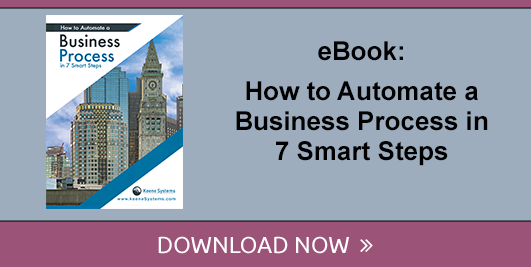The Inefficiencies of Spreadsheets - Is there a better solution?
2 min read

If you examine the day-to-day processes of many early-stage companies, you'll often find that they have one thing in common: a lot of them use spreadsheets to manage a wide range of different aspects of their business. Whether you're talking about Microsoft Excel or Google Sheets doesn't matter - they use them to keep an eye on everything from payroll to project status to invoices and beyond.
While it's true that spreadsheets are an undeniably helpful tool, the major issue is that there will come a day - probably far sooner than you think - where a business just grows too large for this type of "spit and glue" system. It is then that the major spreadsheet inefficiencies - namely lack of knowledge, lack of time and human error - tend to rear their ugly heads at the absolute worst possible time.
The Hassles of Spreadsheets
One of the major issues with using spreadsheets as a business continues to grow is actually present in the beginning, but it only gets worse and worse over time. If your business is going to use spreadsheets to manage critical areas of your infrastructure, you naturally have to count on your employees having a thorough understanding of what spreadsheets can or cannot do in the first place.
This is not necessarily the foregone conclusion you might think it to be.
Spreadsheets are malleable, yes - but they require a lot of formatting. A huge volume of formulas, most of which are usually advanced in nature. Then comes the shift from "keeping track of data" to "actually doing something productive with that data. Does every last member of your team have a grasp of pivot tables and other spreadsheet analysis tools? Probably not.
This in turn leads to another one of the major efficiency problems with spreadsheets: time. Learning how to adequately use spreadsheets can take a large amount of time for even the savviest of employees - time that can usually be spent elsewhere focused on other core areas of your business. There will naturally be a bit of a learning curve, particularly when transferring data and formulas from one document to another, which also introduces human error into the equation.
Typos, copy and paste areas, incorrectly entered formulas - all of these factors are incredibly common and all of them are detrimental to what it is you're actually trying to do in the first place. Suddenly, something that was supposed to help your organization thrive is actually holding it back - all because you wanted to save a little money and use something "off-the-shelf" in those early days.
But thankfully, there's a better way to do all of this - and it's a lot more straightforward than you might think.
The Benefits of a Custom Solution
When you make the decision to invest in a custom solution, you're doing more than just throwing off the shackles that spreadsheets bring with them. You're increasing employee efficiency across the board.
Instead of trying to adapt the way they work to counter whatever natural limitations will always be present in spreadsheets, employees suddenly have a tool that was built from the ground up with the way they like to work in mind. Even difficult administrative tasks become straightforward and easy-to-learn and integration with other solutions is just as simple. Suddenly, you've got a solution that was built for your business - meaning that it helps put you closer to goals like saving time and money instead of farther away from them.
Think about it like this: all of your business systems should be built to maximize employee efficiency and profitability. Anything that makes those two goals difficult to achieve isn't an asset at all - it's a liability. That's exactly what spreadsheets are, but the good news is that they don't have to be any longer.
To learn more about the importance of eliminating human error in your operations, please download the eBook titled "How to Automate Business Process in 7 Smart Steps."


